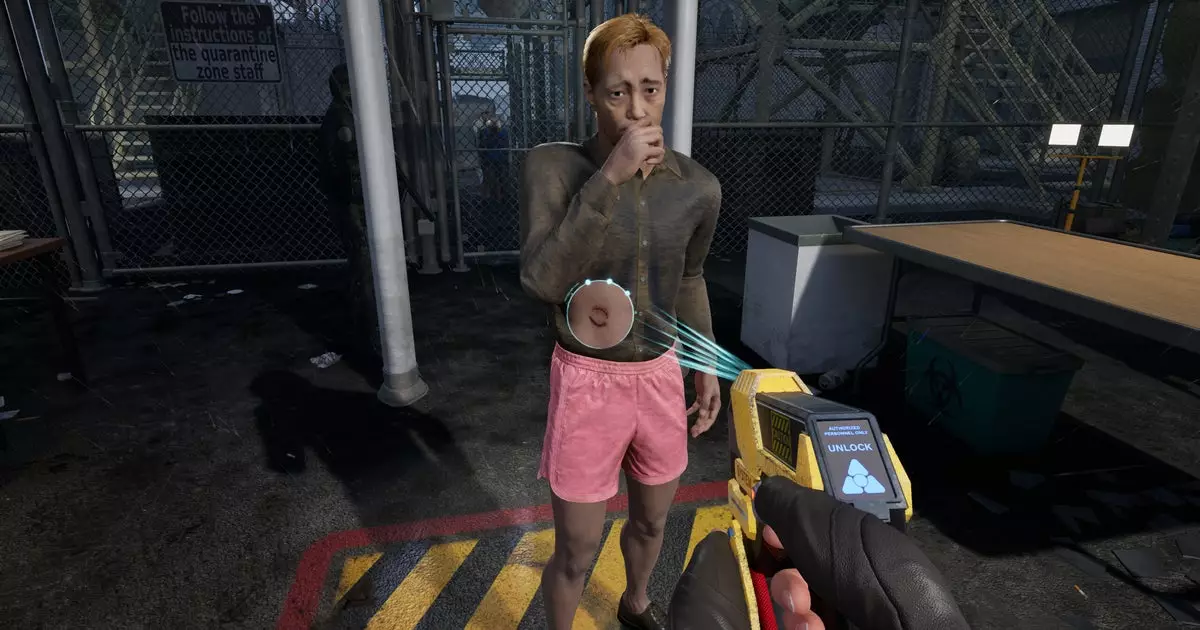In the brutal landscape of quivering horror and strategic decision-making, *Quarantine Zone: The Last Check* distinguishes itself as a game that challenges not only players’ reflexes but also their moral compass. At its core, this game transports players into the grim role of a federal checkpoint officer amidst a zombie outbreak—a scenario brimming with tension, moral dilemmas, and a touch of dark humor. Its premise echoes the familiar strangeness of *Papers, Please*, but layers it with a gripping survival element that demands swift, often cruel, choices.
What makes *Quarantine Zone* particularly compelling is its portrayal of a dismal yet intriguing universe where every decision could mean life or death. The game emphasizes the tension of managing limited resources, identifying infection, and attempting to maintain order under the constant threat of zombie hordes. The crossroads of morality and practicality become blurred as players must decide whether to quarantine, admit, or eliminate individuals based on bodily signs, inconsistent documents, or simple gut instincts—all while navigating the chaos of a collapsing society.
Punishing Decision-Making in a Harsh Environment
This game is not for the faint-hearted. Its mechanics force players into uncomfortable choices, highlighting the cruel realities of controlling a border in times of crisis. Using tools like UV flashlights and thermal scanners, players scrutinize refugees for telltale signs of infection—yet, the clues are often ambiguous. A groaning woman with indigestion can look just as suspicious as a man whose limbs are visibly rotting. The pressure to act swiftly and accurately resembles a moral minefield: do you err on the side of safety and risk turning away innocent people, or do you risk letting potentially infected individuals free, endangering the broader population?
Furthermore, resource scarcity adds another layer of complexity. Limited test kits and inspection tools mean players are forced to prioritize, often relying on instinct and rapid judgment rather than certainty. This resource management aspect—balancing security with compassion—elevates the game from a simple decision simulator to a reflection of real-world border politics, albeit exaggerated for dramatic effect. The game’s design encourages players to reflect on how compassion can sometimes conflict with self-preservation.
Survival, Strategy, and the Dark Comedy of Humanity
Beyond the daily grind of inspections, the game escalates into defensive battles against waves of zombies. Here, *Quarantine Zone* switches genres, blending base-building and wave survival mechanics into a chaotic firefight that tests players’ strategic planning. Each night, the stakes increase; fortifying defenses and preparing for the next onslaught becomes as crucial as the day’s inspections.
But amid the bleakness, the game introduces a humorous twist that offers a surprising emotional release—a satirical take on its own premise. The author’s playful musings about distinguishing between Buster Keaton and Barney the Dinosaur, with absurd scenarios like letting in a silent “Keaton” who might start ladder antics, injects a sense of levity into the otherwise grim setting. These moments suggest that, beyond the dark humor, *Quarantine Zone* invites players to consider the absurdity of human nature when under duress, and perhaps, to appreciate the lighter side of chaos.
While the game can be perceived as a bleak reflection of societal collapse, it also offers a platform for insightful commentary on the nature of judgment and the thin line separating order from chaos. Its popularity, reflected in millions of players and wishlists, underscores its appeal as a compelling, if dark, simulation of humanity under pressure.
Potential for Deeper Commentary and Unique Experiences
What sets *Quarantine Zone* apart is the possibility—if one chooses—to interpret its mechanics as a mirror to larger societal issues. Does it critique the often harsh and inhumane policies at borders? Does it serve as an exaggerated allegory for how fear and scarcity drive us to make brutal decisions? These questions, intentionally or not, linger beneath its gameplay. The game’s playful nod to absurdity—like humorously debating whether a refugee is Buster Keaton or Barney—serves as a reminder that human perception, like in many real-world scenarios, is often subjective and flawed.
Ultimately, *Quarantine Zone* offers more than just a zombie survival game; it prompts reflection on our judgments, our capacity for mercy, and how absurdity can be interwoven with severity. By infusing dark comedy into a tense scenario, it humanizes its characters—both actual and symbolic—and challenges players to confront the moral ambiguities we all face in times of crisis.
As it prepares for release, the game’s promise of a rich, provocative experience beckons players to think critically and laugh at the chaos—an essential reminder that sometimes, even in bleakness, humor can be a form of resistance.


Leave a Reply